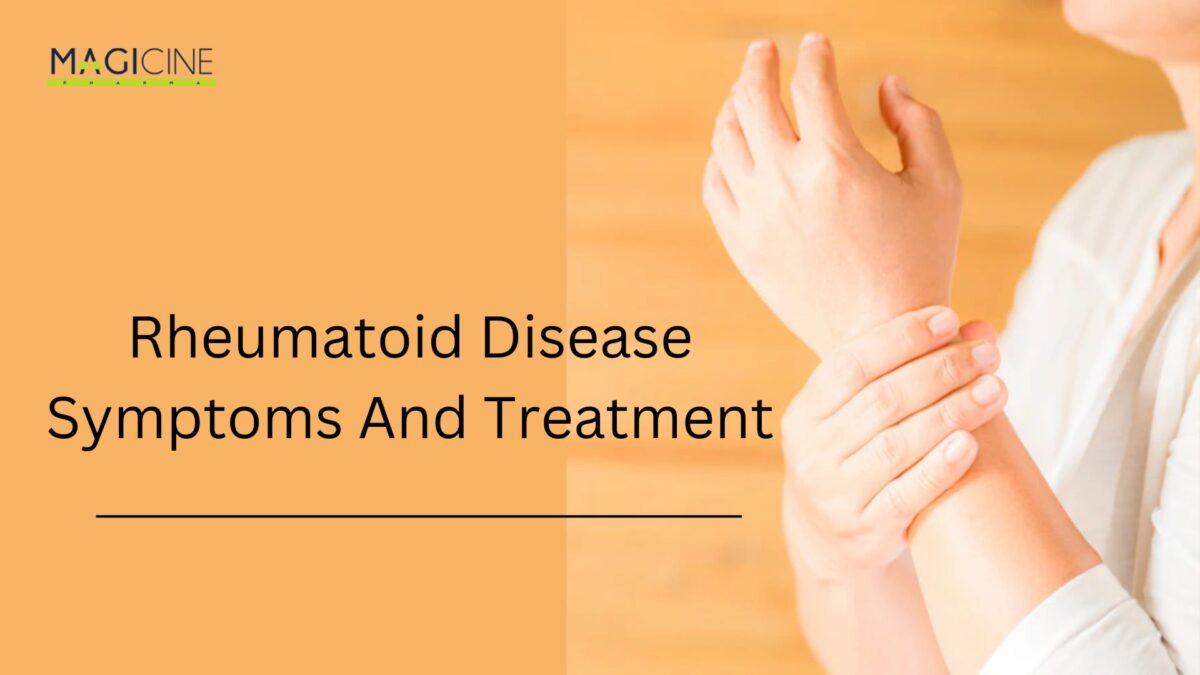Rheumatoid Disease Symptoms-
Rheumatoid disease is an autoimmune condition that causes inflammation and pain in the joints and other parts of the body. It can affect anyone, regardless of age, gender, or ethnicity. It typically affects adults, however, and is far more common in women. The symptoms of the rheumatoid disease can vary from person to person, but the most common are joint pain, stiffness and swelling, fatigue, fever, and sometimes even deformity of joints.
Joint pain and stiffness are two of the most common symptoms of rheumatoid disease. This occurs when the immune system attacks the synovium, a thin membrane surrounding the joints, leading to inflammation. This causes the synovium to produce too much fluid, and this excess fluid can lead to abnormal bone growth which can cause joint swelling, stiffness, and pain. This is often accompanied by fatigue and loss of movement in the affected joints.
Another symptom of rheumatoid disease is fever. Since rheumatoid disease is an autoimmune condition, it can cause a range of other issues such as fever, night sweats, and weight loss. This is due to the body’s heightened state of inflammation and can occur in more severe cases.
In some cases, rheumatoid disease can also cause deformity of the joints. This can be the result of a buildup of abnormal bone and tissue around the joints, putting pressure on nearby tendons and ligaments, resulting in joint deformity. This can include dislocated joints and swollen knuckles or ankles.
Lastly, rheumatoid disease can cause other symptoms such as dry mouth, dry eyes, and rashes. These symptoms can also be caused by other conditions, so it’s important to speak with your doctor if you experience any of these.
Rheumatoid disease treatment
Rheumatoid Disease, or RD, is a chronic and progressive autoimmune illness that affects the lining of the joints, leading to swelling, pain, and deformity. Treatments for RD can include medications, therapies, and lifestyle modifications in order to reduce inflammation and the associated pain.
Medications are the primary treatment for RD and can include both over-the-counter and prescription drugs. Non-steroidal anti-inflammatory drugs (NSAIDs) such as ibuprofen are often used to relieve pain and reduce inflammation. Corticosteroids are powerful anti-inflammatory medications that can be taken orally or injected into the affected area and can provide quick relief of symptoms.
Disease-modifying antirheumatic drugs (DMARDs) are potent drugs designed to suppress the immune system, inhibiting the autoimmune response that is the cause of RD. Biologics are a type of injectable drug that works directly on the body’s immune system, providing direct relief to joints while helping to prevent the progression of RD. Finally, short-term use of opioids, such as codeine and tramadol, can provide pain relief in severe cases.
Physical and occupational therapy can help to reduce pain and maintain joint mobility and function. Therapists can also train patients to safely perform daily living activities, such as showering and dressing without putting additional stress on the joints. It is important for individuals with RD to remain as active as possible and physical therapy can help achieve this goal.
In addition to medications and therapies, lifestyle modifications can make an enormous difference for RD patients. For instance, maintaining an optimal weight can substantially reduce the strain on affected joints. Participating in low-impact activities such as walking, swimming, and yoga can also help to reduce pain and inflammation while building strength and improving the range of motion. It is important to pay attention to proper form and technique while avoiding maintaining a pace that is too fast or intense. In addition, it is essential to get enough sleep as fatigue can increase pain and exhaustion.
Research into rheumatoid arthritis
The research into RA has also focused on identifying potential treatments, as well as understanding why certain medications are more effective than others. Current treatments rely largely on corticosteroids and non-steroidal anti-inflammatory drugs (NSAIDs), which can help to reduce inflammation and pain, though they cannot cure the condition. Scientists are hopeful that further research may eventually lead to more targeted treatments, perhaps even the development of disease-modifying drugs that can slow the progression of the condition or prevent it altogether.
Etoricoxib uses
Etoricoxib 90mg tablet use is a non-steroidal anti-inflammatory drug (NSAID) commonly used to reduce the symptoms of acute pain, swelling, and tenderness caused by a variety of medical conditions, including arthritis and gout. It does this by blocking an enzyme in the body that regulates inflammation, namely cyclooxygenase-2 (COX). Etoricoxib is sold under the brand name Arcoxia.
Etoricoxib is a prescription-only drug that comes in tablet form, to be taken orally. The recommended daily dose is 90 mg, once daily. It should be taken with food, as food increases its effectiveness. Depending on the particular condition, the doctor may prescribe a different dosage. The exact dosage will depend on a variety of individual factors, such as age, sex, the severity of the condition, and any underlying medical conditions or allergies.


